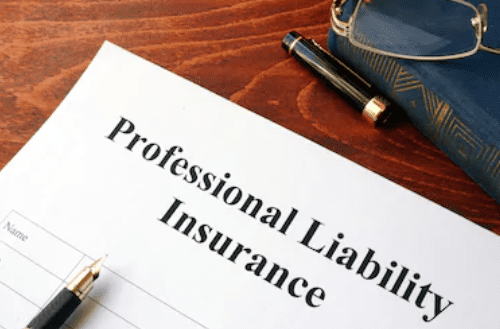Liability Insurance
General Liability for the Self-Employed and Business Owners
Business owners and self-employed professionals need protection whether they have been in business for decades or they just began their professional career. This type of protection is known as General Liability Insurance, and it covers professionals against the cost of compensation claims due to malpractice, personal injury, and/or negligence. Depending on the type of business you are in and where your business is located, there are a few different options for you to choose from when looking for liability insurance nearby. Here, we help you understand the top five types of general liability policies and example of why businesses invest in these types of insurances.
1) Commercial General Liability (CGL) Policy:
A CGL policy protects your business against the claims arising out of bodily injury or property damage arising out of premises, operations, products, or completed operations. Additionally, it covers losses caused due to advertising and personal injury.
For example, a customer visits a store specializing in home building supplies in North Georgia . While looking through building samples, the customer falls and suffers a leg injury. The commercial general liability policy bought by the building company covers the medical expenses of the bodily injury of the customer so that the company doesn’t suffer any other losses.

2) Directors and Officers Liability Insurance:
Type of liability insurance which reimburses for loss for defense costs from legal action for alleged wrongful acts of directors and officers. Such coverage can extend to defense costs arising out of criminal and regulatory investigations/trials as well. This type of liability policy covers the directors and officers against the claims made by:
- Employees
- Suppliers
- Competitors
- Regulators
- Customers
- Shareholders
- Other stakeholders
For example, recently a company dismissed three employees in order to save money, but the eldest employee filed a suit claiming that a particular director had always discriminated him on the grounds of him being significantly older than most of the other employees. 
Of course, after the investigation it was proven he was dismissed based on cost-cutting measures. After the trial, the company did not have to forfeit losses because of their directors and officers liability insurance bought prior to the claim protected them.
3) Professional Indemnity Insurance:
This type of policy covers the businesses or individuals who provide advice or a professional service to clients. In a case such as being sued, this type of policy will cover the compensation claims.
 Let’s say you own a mattress company and one of your employees suggests a customer who is pregnant should get a foam bed. Afterward she begins to suffer severe back pain and not only wants to return the mattress and get her money back, but she also wants to sue for doctor bills for back pain. In this case, your Indemnity Insurance will cover the costs!
Let’s say you own a mattress company and one of your employees suggests a customer who is pregnant should get a foam bed. Afterward she begins to suffer severe back pain and not only wants to return the mattress and get her money back, but she also wants to sue for doctor bills for back pain. In this case, your Indemnity Insurance will cover the costs!
4) Cyber Risk Insurance:
Cyber Insurance Policies are designed to help your organization or business cover against the liability or property losses due to the electronic activity that you use whether it is online or otherwise. This policy helps to offset the risk involved with recovery after a cyber-related security breach.

One example of this in the business realm would be if a dismissed former employee of a company steals the names, addresses, and social security numbers from its customer files then turns around and sells this information to a fraudulent person who uses the information it to obtain credit cards. The affected customers file a complaint against the IT company for their breach of identity. With the policy obtained by the IT firm, however, the cyber risk insurance would aid in settling the claims.
5) Commercial crime insurance:
This type of liability policy protects the businesses against losses due to third-party fraud or employee fidelity, protecting against:
- Dishonest Employee
- Theft
- Burglary
- Robbery
- Forgery
- Computer Fraud
We can see a recent example of this in a city where Dickey McCay has an office. An office manager was arrested for stealing nearly $60,000 from her employer over five years. In this case, had the company bought commercial crime insurance, they would have been able to protect themselves from the most commonly reported general liability claim: theft.

Our Takeaways:
- Good liability risk management can reduce the chances that your business will be sued, but it can never eliminate the risk entirely.
- You or a member of your organization can make a mistake
- Technology helps your company, but also increases chance for security breaches and/or theft, so insuring your business/organization against these is a necessity.
- Depending on the degree of harm and the number of people injured and/or value of property damaged, a lawsuit could bankrupt your business, making liability insurance a necessary investment
As always, Dickey McCay is here to help answer any questions you may have. Call us today to help protect your business or organization against any future stresses or financial burdens.





